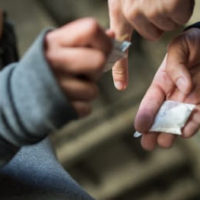How Does Virginia Punish Distributing or Advertising Illegal Drugs to Minors?

Although the Commonwealth of Virginia treats all drug crimes with the utmost seriousness, there are special considerations in place for distributing or advertising illegal drugs to minor children. In this context, the term minor children applies to kids under the age of 18 years old.
Distributing Illegal Drugs to Minor Children
Code of Virginia Section 18.2-255 makes it unlawful to distribute illegal drugs to minor children. Similarly, this section prohibits any person from enlisting minor children to assist with the distribution of illegal drugs.
Outside of certain exceptions, it is generally illegal for any person over the age of 18 to distribute:
- Schedule I drugs (e.g. LSD or heroin) to a minor child who is at least three years younger;
- Schedule II drugs (e.g. cocaine or morphine) to a minor child who is at least three years younger;
- Schedule III drug (e.g. ketamine or steroids) to a minor child who is at least three years younger;
- Schedule IV drug (e.g. clonazepam or barbital) to a minor child who is at least three years younger; or
- Marijuana to a minor child who is at least three years younger.
Any person who violates Section 18.2-255 by delivering illegal drugs to minor children is guilty of a felony in Virginia. The punishment for this offense includes a prison term between 10 and 50 years as well as $100,000 in fines.
Additionally, Section 18.2-255 establishes certain mandatory minimum sentences for specific distribution offenses:
- Schedule I/II Drugs — There is a mandatory minimum of 60 months in prison for distributing Schedule I or II drugs to minor children;
- Marijuana (28 grams or more) — There is a mandatory minimum of 60 months in prison for distributing at least 28 grams of marijuana to minor children; and
- Marijuana (Under 28 grams) — There is a mandatory minimum of 24 months in prison for distributing less than 28 grams of marijuana to minor children.
Advertising Illegal Drug Tools to Minor Children
Code of Virginia Section 18.2-255.1 makes it illegal to provide minor children with printed materials with advertising for illegal drug tools. In this sense, illegal drug tools refer to devices and instruments that help a person unlawfully:
- Administer marijuana or other illegal drugs;
- Grow marijuana or other illegal drugs;
- Ingest marijuana or other illegal drugs;
- Prepare marijuana or other illegal drugs; or
- Smoke marijuana or other illegal drugs.
If a person knowingly sells, displays, or distributes any such materials, it qualifies as a Class 1 misdemeanor under Section 255.1. If convicted, the offender can expect a maximum jail sentence of 12 months and fines up to $2,500.
Do You Need Legal Help?
If you need legal help with criminal charges for a drug crime in Virginia, it can be considerably informative to consult with a battle-tested Leesburg drug crimes lawyer. The lawyers at Simms Showers LLP understand how to fight against a variety of criminal charges, including a vast assortment of drug crimes. If you need legal help with criminal defense, contact us today for a free initial consultation.
https://www.simmsshowerslaw.com/how-does-virginia-address-methamphetamine-manufacturing/
